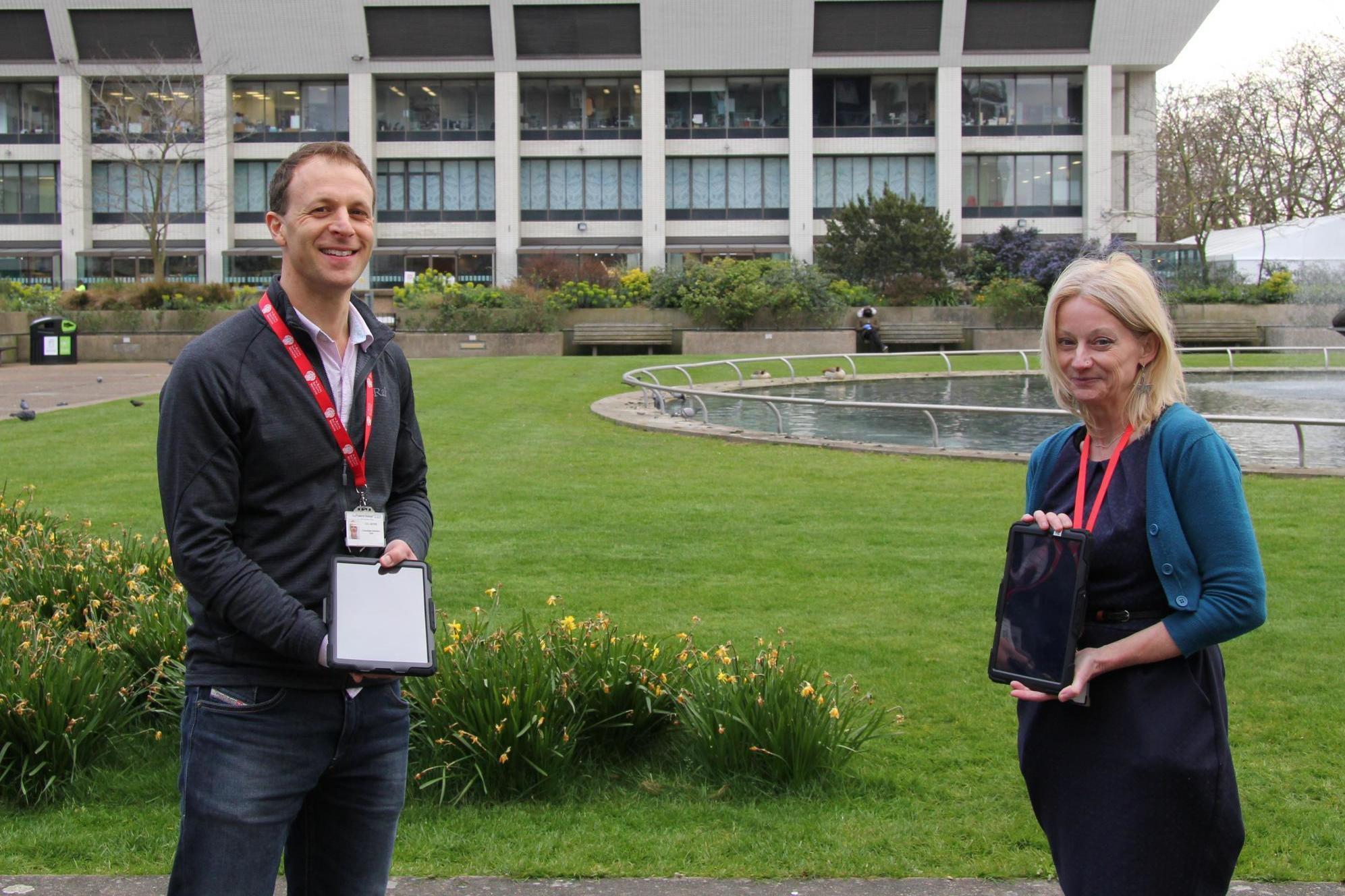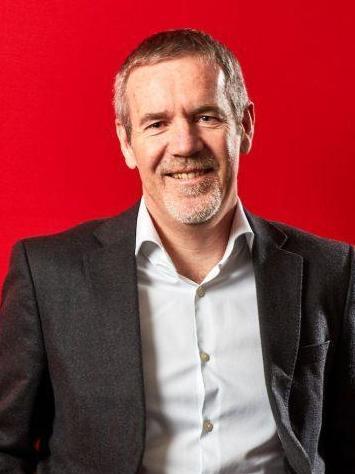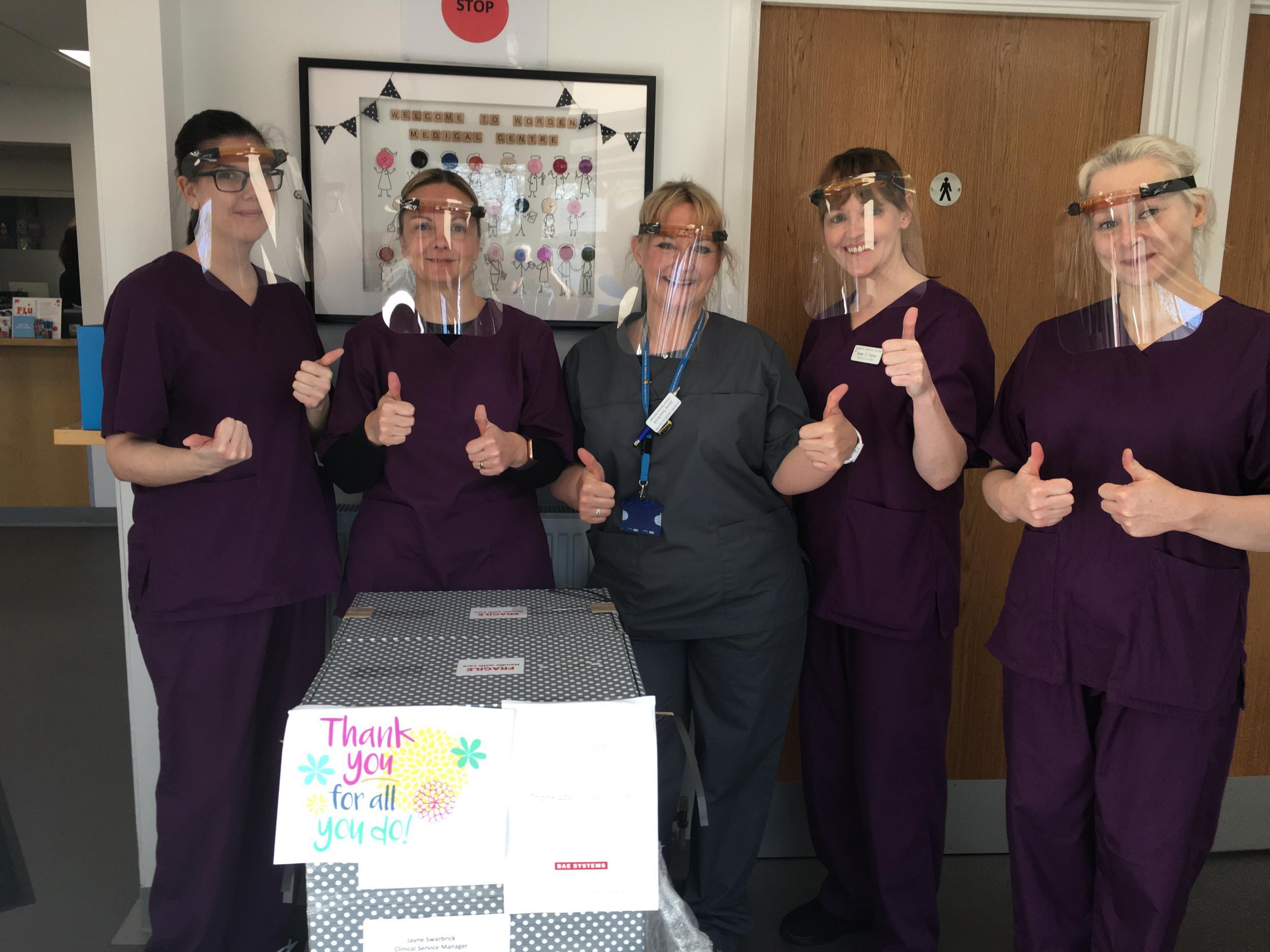Meet the tech companies helping in the fight against Covid-19
How a variety of organisations have used cutting-edge technology to respond to the urgent needs of people all around the UK

Working together with the key workers on the frontline against coronavirus are employees from a host of private companies, including staff from many of the large outsourcing firms that the Government regularly works with.
Employees across these companies have adapted rapidly to an ever-changing environment, responding to the urgent needs of people across the UK to ensure that life remains as normal as it can be.
“The way we have seen many large organisations and their staff move from their normal day-to-day work into projects to help tackle coronavirus has been remarkable,” says Lord Agnew, Minister of State at the Cabinet Office.
“Their work is a tribute to their organisations and a wonderful example of their commitment to working on behalf of the public.”
One of the key ways in which these organisations have helped is through advanced use of technology and by diversifying from their usual roles. Here are three examples of companies who have embraced technology to help in the fight against Covid-19…
Helping patients stay in touch
Life Lines is a project providing a secure virtual visiting solution for families whose loved ones are in intensive care units.
Founded by Professor Louise Rose, a professor of critical care nursing at King’s College London and Dr Joel Meyer, a critical care consultant at Guy’s and St Thomas’, (both pictured above), the initiative joined forces with Michael Paquet, who developed medical app Atouchaway, to ensure the virtual communication could be secure and efficient.
“It’s very important for doctors and nurses in ICU teams to have a connection with a patient’s family – we see supporting family as part of our role – so to be able to do that even when they can’t visit is important to staff,” explains co-founder Professor Rose.
Life Lines has equipped 157 ICUs with more than 1,000 tablets that allow patients to communicate with relatives, and give medical staff the opportunity to explain treatments and answer questions.
This wouldn’t have been possible without the support of key partners such as BT which has provided new, 4G-enabled equipment and 4G wifi hubs to ICUs.
“Working with Guy’s and St Thomas’ and King’s College Hospital has been an incredible demonstration of cross-industry organisations collaborating for a really important and human cause,” says Lucy Baker, technology director at BT Enterprise.
“We’re humbled to help connect loved ones with one another during such a difficult and distressing time for so many.”
As of last week, Life Lines had been responsible for more than 15,000 video calls, and with more equipment going to ICUs across the country, it’s a number that’s only set to rise.
Free sim cards for students
Vodafone has been working alongside the Welsh Government on Digital Communities Wales (DCW). The digital inclusion programme is designed to help individuals across all parts of the principality who have limited digital skills and experience, or in some cases have no digital connectivity at all.

Among the initial beneficiaries of the programme were disadvantaged students in Wales who were able to continue their education during lockdown, after the company supplied over 5,000 sim cards to the Welsh Government.
“It’s particularly rewarding to be in a position to use the power of our network and expertise to ensure that this crisis does little to hinder anyone’s education no matter what their circumstance,” says Scott Petty, chief technology officer, Vodafone UK, left. “These students are now in a position to continue their studies, which is one less thing for them to stress over.”
The programme is initially for three months, although the team is working to build the business case to extend it when children restart their school-based education.
The partnership has faced a number of challenges.
“Yet, with our agile working capabilities and Vodafone’s commitment to supporting customers and communities across the UK we were able to fully deliver for our customers,” adds Petty.
Making PPE equipment for the NHS
BAE Systems has adapted their 3D printing processes to create over 147,000 face shields for NHS staff.
After an initial phone call from GP surgeries in Barrow asking for help with sourcing PPE, the team stepped into action.
“Within a couple of days we using our facilities at Samlesbury and some of our facilities at Barrow to produce some initial prototypes,” explains Dave Short, BAE Systems technology director, below.
Things rapidly snowballed, and as soon as they were given the green light the BAe team sourced a mass manufacturing 3D printing farm in Peterborough and managed to turn around further requests from all over the UK.
“When somebody identified a requirement - and it may only be for 100 or 200 face visors - we could within a couple of days, have that delivered to their door,” says Short.

As well as face shields, the BAe Maritime Services team on the Isle of Wight is 3D-printing the Door Claw - created by Vestas, a company that usually makes wind turbine blades - which allows users to open doors without touching the handle.
“We’d like to think that we’ve had a positive impact on some people’s lives, it’s impossible to know for sure but the volume is such that hopefully we’ve just made a difference,” adds Short. “Even if it only made a difference to one person it’s all been worthwhile.”
Subscribe to Independent Premium to bookmark this article
Want to bookmark your favourite articles and stories to read or reference later? Start your Independent Premium subscription today.
